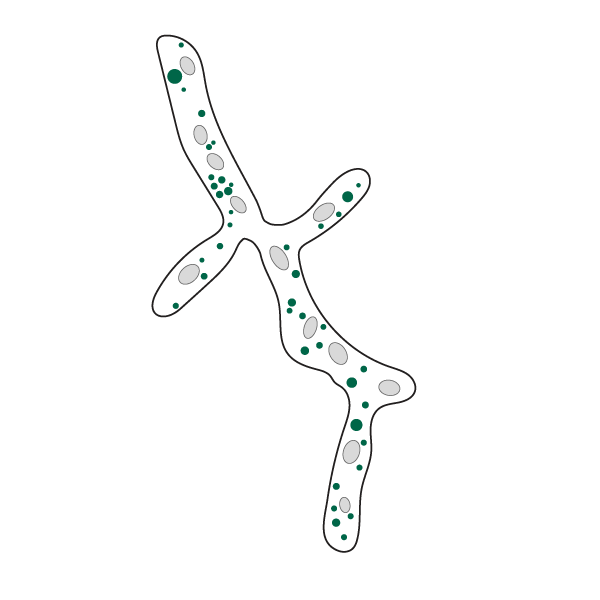The Center for Biomolecular Condensates

The Center for Biomolecular Center is focused on understanding how spontaneous and driven phase transitions drive the spatial and temporal organization of cellular matter into membraneless organelles known as biomolecular condensates.
Cells control and execute a multitude of biochemical reactions that directly determine cell physiology and pathology. These reactions must occur in the right place at the right time. Condensates enable spatiotemporal organization and a lens through which we can understand how cells achieve robust and reproducible control over specific and synergistic sets of biochemical reactions.
Condensates come in distinct flavors, defined by specific macromolecular and small molecule compositions that enable specific functions. All this appears to be achieved by the physical principles of phase separation coupled to a variety of continuous phase transitions. The center brings together a unique combination of scientists and engineers who are embedded in condensate science or are condensate-adjacent in terms of their interests and expertise. The overall goal is to advance our understanding of condensate biogenesis in different cellular states and physiological settings with a view toward understanding how condensate dysfunction or aberrant phase transitions give rise to diseases such as myopathies, insulin resistance, neurodegeneration, and cancer. The role of condensates in viral and bacterial infections is also of interest. We are driven by the promise of revolutionizing synthetic biology through the deployment of engineered condensates in cells. And finally, the reach of condensates is allowing us to understand their role in plant physiology and disease, and seek advancements in applications of sustainable technologies.
The four key foci of the center are as follows: (i) Near- and non-equilibrium physical principles of phase transitions brought to bear on understanding condensate biogenesis and regulation; (ii) Bottom-up biochemical reconstitutions of condensate facsimiles; (iii) Condensate characterization using novel materials science and optical methods; and (iv) Engineering of novel condensates for synthetic biology applications.
